SEO
How To Build A Remote Team For SEO: Planning & Structure

As the first pandemic lockdowns went into effect, many companies scrambled to find a way to make remote working possible.
When lockdowns lifted, a lot of these companies decided that the way of “office-first” working patterns was no longer necessary, especially in the digital marketing industry.
Agency owners realized the cost savings in giving up their offices.
Employees discovered the freedom of a one-minute commute to their desks.
Remote work is here to stay.
Your team may have recently moved to become fully remote, or you are hiring your first of many remote SEO pros.
Either way, you’ll need to make many considerations for it to be a well-functioning team.
This is the first part of a series of articles about how to build a fully remote team for SEO and in this first step, we’re going to talk about planning and structure to set the foundation for your success.
How Your SEO Team Is Structured
Your team’s structure will make a difference in your success in setting up a remote team.
For instance, there will be different considerations for remote SEO teams in one country versus teams spread out across time zones.
Not all remote teams became remote in the same way.
Because of this, the individuals on those teams may have different expectations and experiences of remote working.
When building or scaling a fully remote SEO team, this is important to remember.
Types Of Remote Teams
Remote teams function in different ways, each with benefits and challenges.
National vs. International
A remote team with employees all in one country (or if in the U.S., in just one state) will be easier to administrate.
There will be one set of tax laws, one set of employment laws, and one set of public holidays.
There are fewer administrative hurdles for a manager of an SEO team operating in one location, albeit remotely.
Managers of international teams will need to remember that there can be significant differences in how you treat employees depending on the country they reside.
Meet-up Space vs. No Meet-up Space
When creating or growing your SEO team, you may offer your employees access to a physical location that they can choose to attend for meetings and in-person collaboration.
Some companies have retained small office space despite going fully remote just for this purpose.
Others choose to give their team membership or allowances for co-working spaces.
By giving your team members this option, you allow them to choose to hold a face-to-face meeting or remain remote.
It also enables them to get out of the house and sit among people (without the latte bill of visiting a café).
However, offering this sort of arrangement can go against the fully remote-first culture of a company.
If not properly monitored, you may find team members agreeing to meet up every week at a convenient co-working space.
While this is not a problem, if it starts to become expected that team members meet together regularly, it is considered a hybrid model.
Again, this is not an issue if your team is expecting it. However, it can add undue pressure and remove the benefits of remote working for some workers if it’s not truly remote-first.
How the Company Is Set Up
How the rest of your company approaches remote work will also impact how to manage your remote-first team.
Hybrid Companies
If the SEO team is fully remote but operates within a larger organization that isn’t, you may see your team pressured to visit the office more often than they would like.
This is particularly the case in hybrid organizations that offer an office and a remote-based contract.
Even if every team member is on a remote-first contract, they may be asked to join other department meetings in the office.
This can be particularly stressful for employees to navigate, and managers may need to help set boundaries with their participation in those face-to-face meetings.
You may find yourself as one of the few managers within the company who leads a fully-remote team.
That can be a great learning curve and allow you to help set parameters and guidelines, but it also can be a struggle.
Remote Companies
Fully remote companies will likely be better equipped to handle the challenges of remote-first working.
When all of your staff are working remotely, a company needs to get good at handling video-call fatigue, async working, and team-building quickly.
As a manager of an SEO team that sits within a fully-remote organization, there will likely be a lot of support for you in running your team well in that environment.
Considerations For Reward
How you pay your team, the benefits, and the remuneration rules will differ greatly by location.
Having a team that is spread across states or countries means there may be some work and research to consider the best pay structure.
Compensation
How much you pay your remote team is not as straightforward a decision as for a team that is all based in one location. There are several factors to consider that can complicate payment structures.
The main complication is that the wages you pay in one country for an SEO manager will be different compared to another.
This can be down to average wages differing.
The scarcity of skills in some countries drives SEO salaries up. Even unfair perceptions of SEO talent from one country being better than others.
This can all culminate in candidates from different countries having wildly differing salary expectations for the same role.
Pricing Models
There are two main schools of thought on identifying how to pay staff across different locations.
- Pay all staff the same amount, converted into their currency, regardless of where in the world they are working from (location-agnostic pay).
- Pay staff their country’s market rate for their role (location-based pay).
Both methods have pros and cons, and ultimately, this will be a business decision.
As a fully-remote SEO team line manager, you may not have much say in this.
However, knowing the benefits and pitfalls is good as you will likely be the first person your team member approaches to talk about it.
Location-based Pay
Location-based pay can give employees who live in high cost of living areas the much-needed additional salary to be comfortable in those areas.
It can also mean that hiring out of some countries is more economical for employers, increasing the attractiveness of candidates from these locations.
However, paying employees vastly different amounts for the same job can lead to resentment.
It can also feed into the cycle of poor wages for some countries rather than helping to increase wages.
Location-Agnostic Pay
Paying staff the same amount for the same roles regardless of where they live can help bring more equality to pay across the world.
However, it can also mean that employees have vastly different experiences of trying to live comfortably on those wages.
For example, the salary for a U.K. SEO professional of £45,000 would pay for a very different size of accommodation in London city-center compared to the countryside in the North of England.
It could be the difference between renting a room in a house share versus owning a house.
This can be considerably starker when looking at the cost of living in different countries.
Conversations About Pay
Be aware in geographies where it is perfectly legal to do so, staff may talk about their salaries with each other.
Be ready to explain your salary structure to your team regardless of your route.
It may be better to have these conversations with your team when you hire them, rather than waiting for them to get upset that they have a worse salary package/standard of living than their colleagues doing the same job.
Benefits
Beyond base salary, you’ll need to consider benefits for your remote SEO team.
Again, this might not be as simple as offering every employee the same benefit.
There may be differences based on local laws and taxes.
Remote-work Centric
You can tailor the benefits you offer to the unique needs of remote workers.
Think of what your team may be lacking due to not coming into a shared office space regularly.
The lure of free coffee and a pool table has never really been enough to tempt SEO experts into the office, but there will be some things remote workers miss out on.
Consider social, community, or health benefits that might be even more important for team members working remotely.
For example:
- Membership in co-working spaces.
- Social club/activity membership.
- Gym membership.
- Volunteering days.
- Weekly takeaway/grocery-shop budgets.
Equipment
Just providing your team with a laptop may not be enough for them to thrive working from home.
You may also want to provide a stipend for setting up a home office in a comfortable, ergonomic way.
They will know what suits them the most for their home environment.
For example, being able to buy a room divider to section off the area of their room with their desk and work equipment may do wonders for their work/life balance.
Providing them with enough money to purchase a suitable desk, a second monitor, and a separate keyboard may be an essential benefit.
As SEO professionals, we spend our lives online.
To do a good job, we need a stable internet connection.
This is something you should speak to your team about when hiring them.
It might not be something that occurs to a first-time work-from-home colleague.
Differ By Location
A critical consideration is the differences in how benefits are treated legally and for tax purposes across locations.
For example, there are rules around employers providing workplace pensions in the U.K.
To offer a pension is not a benefit unless the employer’s contribution is more than what is legally mandated.
This financial minimum may be different in other countries.
How these benefits are taxed will change dependent on location too.
What may seem like a perk for an employee in one country may be a huge tax burden to another elsewhere in the world.
Seek advice from experts in international hiring and remuneration if your company is building a fully remote team across geographies with different laws for the first time.
Necessary Benefits
There are some locations where benefits are more of a necessity than others.
For example, a benefit of private healthcare in the UK is often seen as exactly that, a benefit.
Citizens of the UK have access to free healthcare that the government provides.
A health insurance plan can help access private healthcare, but not offering it will not prevent them from receiving healthcare.
Like the US, the importance of a good healthcare plan is far greater to employees in other countries.
When considering what benefits to offer your fully-remote SEO team, it is unlikely one-size-fits-all will work across geographies.
In my next column, we’ll continue this series with a deep dive into the legal considerations in setting up your remote SEO team, plus communication and collaboration tips to help you succeed.
More resources:
Featured Image: Josep Suria/Shutterstock
!function(f,b,e,v,n,t,s)
{if(f.fbq)return;n=f.fbq=function(){n.callMethod?
n.callMethod.apply(n,arguments):n.queue.push(arguments)};
if(!f._fbq)f._fbq=n;n.push=n;n.loaded=!0;n.version=’2.0′;
n.queue=[];t=b.createElement(e);t.async=!0;
t.src=v;s=b.getElementsByTagName(e)[0];
s.parentNode.insertBefore(t,s)}(window,document,’script’,
‘https://connect.facebook.net/en_US/fbevents.js’);
if( typeof sopp !== “undefined” && sopp === ‘yes’ ){
fbq(‘dataProcessingOptions’, [‘LDU’], 1, 1000);
}else{
fbq(‘dataProcessingOptions’, []);
}
fbq(‘init’, ‘1321385257908563’);
fbq(‘track’, ‘PageView’);
fbq(‘trackSingle’, ‘1321385257908563’, ‘ViewContent’, {
content_name: ‘build-remote-team-seo-planning’,
content_category: ‘agency careers-education seo-strategy’
});
SEO
Google Confirms Links Are Not That Important

Google’s Gary Illyes confirmed at a recent search marketing conference that Google needs very few links, adding to the growing body of evidence that publishers need to focus on other factors. Gary tweeted confirmation that he indeed say those words.
Background Of Links For Ranking
Links were discovered in the late 1990’s to be a good signal for search engines to use for validating how authoritative a website is and then Google discovered soon after that anchor text could be used to provide semantic signals about what a webpage was about.
One of the most important research papers was Authoritative Sources in a Hyperlinked Environment by Jon M. Kleinberg, published around 1998 (link to research paper at the end of the article). The main discovery of this research paper is that there is too many web pages and there was no objective way to filter search results for quality in order to rank web pages for a subjective idea of relevance.
The author of the research paper discovered that links could be used as an objective filter for authoritativeness.
Kleinberg wrote:
“To provide effective search methods under these conditions, one needs a way to filter, from among a huge collection of relevant pages, a small set of the most “authoritative” or ‘definitive’ ones.”
This is the most influential research paper on links because it kick-started more research on ways to use links beyond as an authority metric but as a subjective metric for relevance.
Objective is something factual. Subjective is something that’s closer to an opinion. The founders of Google discovered how to use the subjective opinions of the Internet as a relevance metric for what to rank in the search results.
What Larry Page and Sergey Brin discovered and shared in their research paper (The Anatomy of a Large-Scale Hypertextual Web Search Engine – link at end of this article) was that it was possible to harness the power of anchor text to determine the subjective opinion of relevance from actual humans. It was essentially crowdsourcing the opinions of millions of website expressed through the link structure between each webpage.
What Did Gary Illyes Say About Links In 2024?
At a recent search conference in Bulgaria, Google’s Gary Illyes made a comment about how Google doesn’t really need that many links and how Google has made links less important.
Patrick Stox tweeted about what he heard at the search conference:
” ‘We need very few links to rank pages… Over the years we’ve made links less important.’ @methode #serpconf2024″
Google’s Gary Illyes tweeted a confirmation of that statement:
“I shouldn’t have said that… I definitely shouldn’t have said that”
Why Links Matter Less
The initial state of anchor text when Google first used links for ranking purposes was absolutely non-spammy, which is why it was so useful. Hyperlinks were primarily used as a way to send traffic from one website to another website.
But by 2004 or 2005 Google was using statistical analysis to detect manipulated links, then around 2004 “powered-by” links in website footers stopped passing anchor text value, and by 2006 links close to the words “advertising” stopped passing link value, links from directories stopped passing ranking value and by 2012 Google deployed a massive link algorithm called Penguin that destroyed the rankings of likely millions of websites, many of which were using guest posting.
The link signal eventually became so bad that Google decided in 2019 to selectively use nofollow links for ranking purposes. Google’s Gary Illyes confirmed that the change to nofollow was made because of the link signal.
Google Explicitly Confirms That Links Matter Less
In 2023 Google’s Gary Illyes shared at a PubCon Austin that links were not even in the top 3 of ranking factors. Then in March 2024, coinciding with the March 2024 Core Algorithm Update, Google updated their spam policies documentation to downplay the importance of links for ranking purposes.
The documentation previously said:
“Google uses links as an important factor in determining the relevancy of web pages.”
The update to the documentation that mentioned links was updated to remove the word important.
Links are not just listed as just another factor:
“Google uses links as a factor in determining the relevancy of web pages.”
At the beginning of April Google’s John Mueller advised that there are more useful SEO activities to engage on than links.
Mueller explained:
“There are more important things for websites nowadays, and over-focusing on links will often result in you wasting your time doing things that don’t make your website better overall”
Finally, Gary Illyes explicitly said that Google needs very few links to rank webpages and confirmed it.
I shouldn’t have said that… I definitely shouldn’t have said that
— Gary 鯨理/경리 Illyes (so official, trust me) (@methode) April 19, 2024
Why Google Doesn’t Need Links
The reason why Google doesn’t need many links is likely because of the extent of AI and natural language undertanding that Google uses in their algorithms. Google must be highly confident in its algorithm to be able to explicitly say that they don’t need it.
Way back when Google implemented the nofollow into the algorithm there were many link builders who sold comment spam links who continued to lie that comment spam still worked. As someone who started link building at the very beginning of modern SEO (I was the moderator of the link building forum at the #1 SEO forum of that time), I can say with confidence that links have stopped playing much of a role in rankings beginning several years ago, which is why I stopped about five or six years ago.
Read the research papers
Authoritative Sources in a Hyperlinked Environment – Jon M. Kleinberg (PDF)
The Anatomy of a Large-Scale Hypertextual Web Search Engine
Featured Image by Shutterstock/RYO Alexandre
SEO
How to Become an SEO Lead (10 Tips That Advanced My Career)
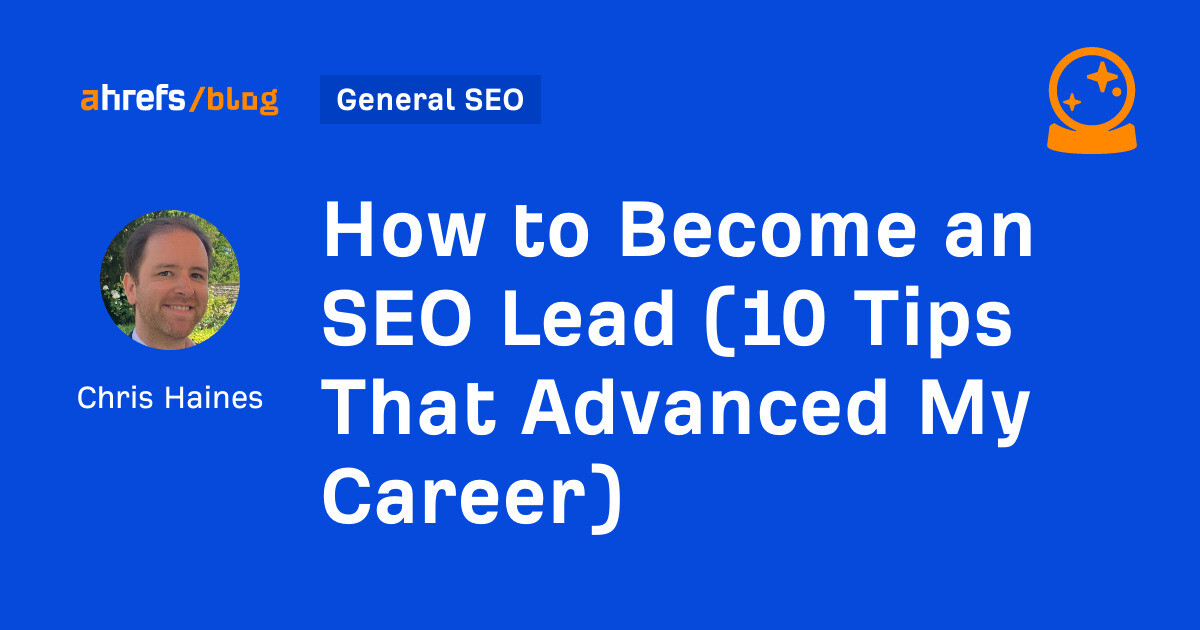
A few years ago, I was an SEO Lead managing enterprise clients’ SEO campaigns. It’s a senior role and takes a lot of work to get there. So how can you do it, too?
In this article, I’ll share ten tips to help you climb the next rung in the SEO career ladder.
Helping new hires in the SEO team is important if you want to become an SEO Lead. It gives you the experience to develop your leadership skills, and you can also share your knowledge and help others learn and grow.
It demonstrates you can explain things well, provide helpful feedback, and improve the team’s standard of work. It shows you care about the team’s success, which is essential for leaders. Bosses look for someone who can do their work well and help everyone improve.
Here are some practical examples of things I did early in my career to help mentor junior members of the team that you can try as well:
- Hold “lunch and learn” sessions on topics related to SEO and share case studies of work you have done
- Create process documents for the junior members of the team to show them how to complete specific tasks related to your work
- Compile lists of your favorite tools and resources for junior members of the team
- Create onboarding documents for interns joining the company
Wouldn’t it be great if you could look at every single SEO Lead’s resume? Well, you already can. You can infer ~70% of any SEO’s resume by spying on their LinkedIn and social media channels.
Type “SEO Lead” into LinkedIn and see what you get.
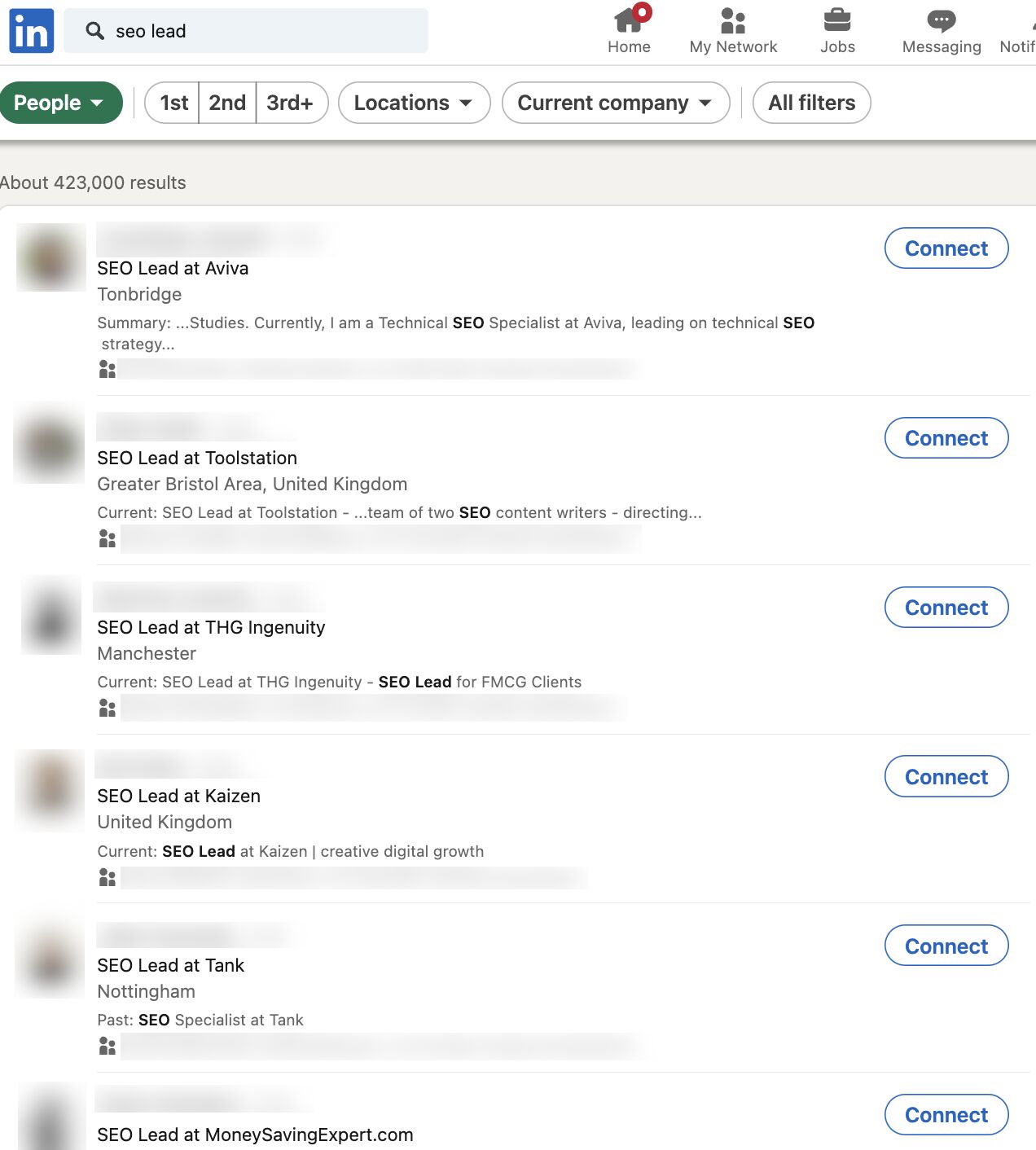
Tip
Look for common career patterns of the SEOs you admire in the industry.
I used this method to understand how my favorite SEOs and people at my company navigated their way from a junior role to a senior role.
For example, when the Head of SEO at the time Kirsty Hulse, joined my team, I added her on LinkedIn and realized that if I wanted to follow in her footsteps, I’d need to start by getting the role of SEO Manager to stand any possible chance of leading SEO campaigns like she was.
The progression in my company was from SEO Executive to Senior SEO Executive (Junior roles in London, UK), but as an outsider coming into the company, Kirsty showed me that it was possible to jump straight to SEO Manager given the right circumstances.
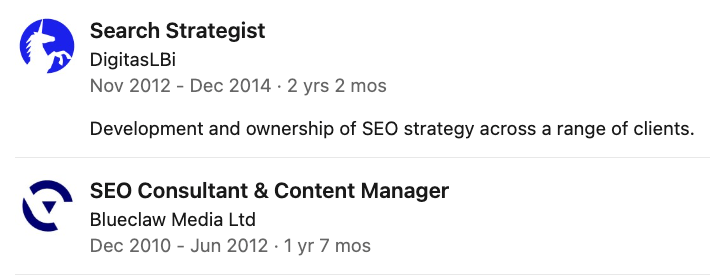

Using Kirsty’s and other SEOs’ profiles, I decided that the next step in my career needed to be SEO Manager, and at some point, I needed to get some experience with a bigger media agency so I could work my way up to leading an SEO campaign with bigger brands.
Sadly, you can’t just rock up to a monthly meeting and start leading a big brand SEO campaign. You’ll need to prove yourself to your line manager first. So how can you do this?
Here’s what I’d suggest you do:
- Create a strong track record with smaller companies.
- Obsessively share your wins with your company, so that senior management will already know you can deliver.
- At your performance review, tell your line manager that you want to work on bigger campaigns and take on more responsibility.
If there’s no hope of working with a big brand at your current job, you might need to consider looking for a new job where there is a recognizable brand. This was what I realized I needed to do if I wanted to get more experience.
Tip
Get recruiters on LinkedIn to give you the inside scoop on which brands or agencies are hiring. Ask them if you have any skill gaps on your resume that could prevent you from getting a job with these companies.
Being critical of your skill gaps can be hard to do. I found the best way to identify them early in my career was to ask other people—specifically recruiters. They had knowledge of the industry and were usually fairly honest as to what I needed to improve.
From this, I realized I lacked experience working with other teams—like PR, social, and development teams. As a junior SEO, your mind is focused 99% on doing SEO, but when you become more senior, your integration with other teams is important to your success.
For this reason, I’d suggest that aspiring SEO Leads should have a good working knowledge of how other teams outside of SEO operate. If you take the time to do this, it will pay dividends later in your career:
- If there are other teams in your company, ask if you can do some onboarding training with them.
- Get to know other team leads within your company and learn how they work.
- Take training courses to learn the fundamentals of other disciplines that complement SEO, such as Python, SQL, or content creation.
Sometimes, employers use skill gaps to pay you less, so it’s crucial to get the skills you need early on…


Examples of other skill gaps I’ve noticed include:
Tip
If you think you have a lot of skill gaps, then you can brush up your skills with our SEO academy. Once you’ve completed that, you can fast-track your knowledge by taking a course like Tom Critchlow’s SEO MBA, or you can try to develop these skills through your job.


As a junior in any company, it can be hard to get your voice heard amongst the senior crowd. Ten years ago, I shared my wins with the team in a weekly group email in the office.
Here’s what you should be sharing:
- Praise from 3rd parties, e.g. “the client said they are impressed with the work this month.”
- Successful performance insights, e.g “following our SEO change, the client has seen X% more conversions this month.”
- Examples of the work you led, e.g. if your leadership and decision-making led to good results, then you need to share it.
At Ahrefs I keep a “wins” document. It’s just a simple spreadsheet that lists feedback on the blog posts I’ve written, the links I’ve earned and what newsletters my post was included in. It’s useful to have a document like this so you have a record of your achievements.
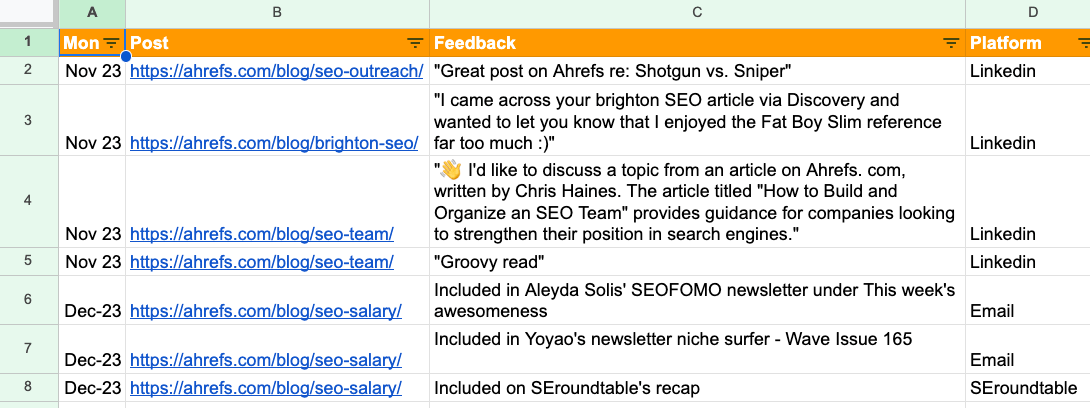

Sidenote.
Junior SEOs sometimes talk about the things “we” achieved as a team rather than what they achieved at the interview stage. If you want the SEO Lead role, remember to talk about what you achieved. While there’s no “I” in team, you also need to advocate for yourself.
One of my first big wins as an SEO was getting a link from an outreach campaign on Buzzfeed. When I went to Brighton SEO later that year and saw Matthew Howells-Barby sharing how he got a Buzzfeed link, I realized that this was not something everyone had done.
So when I did manage to become an SEO Lead, and my team won a prize in Publicis Groupe for our SEO performance, I made sure everyone knew about the work we did. I even wrote a case study on the work for Publicis Groupe’s intranet.


I’ve worked with some incredibly talented people, many of whom have helped me in my career.
I owe my big break to Tim Cripps, Laura Scott, and Kevin Mclaren. Without their support and encouragement, I wouldn’t be where I am today. Even before that, David Schulhof, Jodie Wheeler, and Carl Brooks let me mastermind some bonkers content campaigns that were lucky enough to succeed:


I wasn’t even an SEO Lead at that point, but they gave me the reins and trusted me.
So, how can you find your tribe?
- Speak to recruiters – they might hold the ticket to your next dream job. I spoke to many recruiters early in my career, but only two recruiters delivered for me—they were Natasha Woodford, and Amalia Gouta. Natasha helped me get a job that filled my skill gap, and Amalia helped me get my first SEO Lead role.
- Go to events and SEO conferences, and talk to speakers to build connections outside of your company.
- Use LinkedIn and other social media to interact with other companies or individuals that resonate with you.
Many senior SEO professionals spend most of their online lives on X and LinkedIn. If you’re not using them, you’re missing out on juicy opportunities.
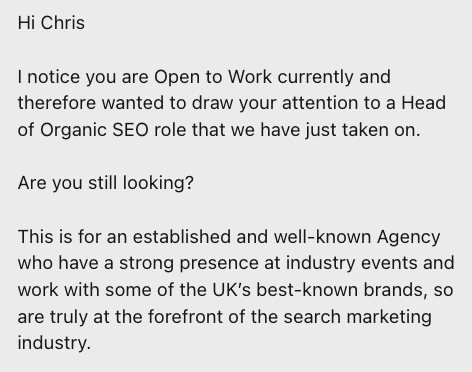

Sharing your expertise on these platforms is one of the easiest ways to increase your chances of getting a senior SEO role. Because, believe it or not, sometimes a job offer can be just a DM away.
Here’s some specific ideas of what you can share:
- Share your thoughts on a trending topic – like the latest Google algorithm update.
- Share what you learned during the course of a campaign.
- Ask the community for their thoughts on a certain topic.
I’ve recently started posting on LinkedIn and am impressed by the reach you can get by posting infrequently on these topics.
Here’s an example of one of my posts where I asked the community for help researching an article I was writing:
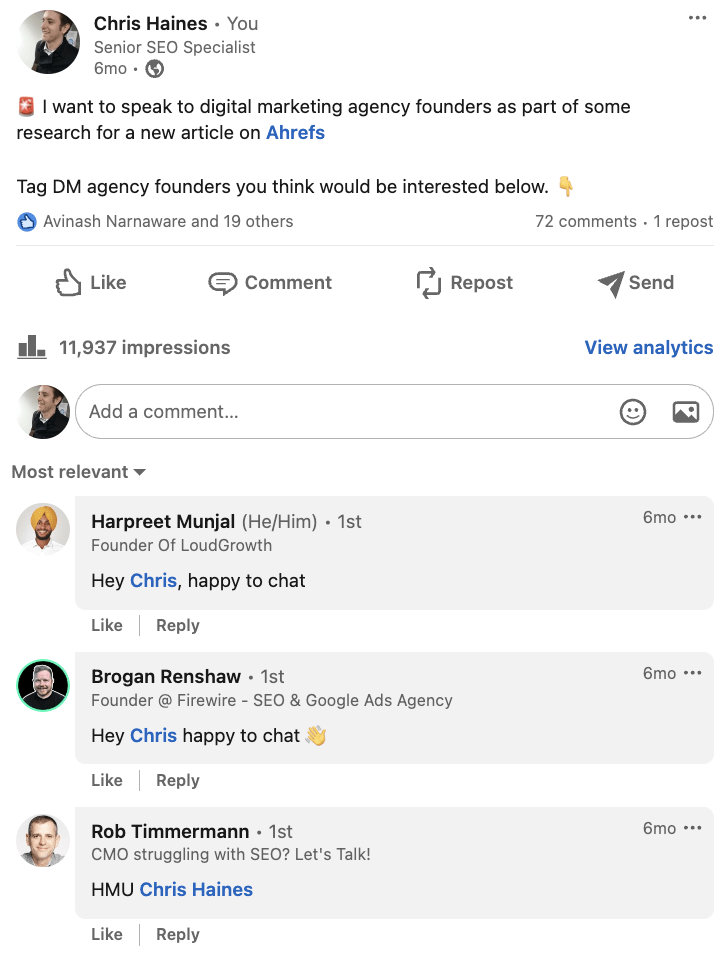

And here is the content performance across the last year from posting these updates.
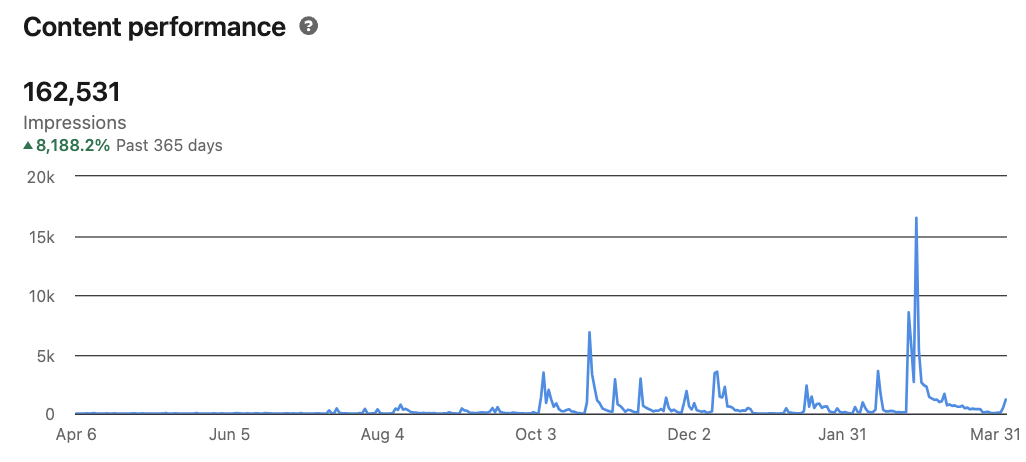

I’m clearly not a LinkedIn expert—far from it! But as you can see, with just a few months of posting, you can start to make these platforms work for you.
Godard Abel, co-founder of G2, talked on a podcast about conscious leadership. This struck a chord with me recently as I realized that I had practiced some of the principles of conscious leadership—unconsciously.
You can start practicing conscious leadership by asking yourself if your actions are above or below the line. Here are a few examples of above and below-the-line thinking:
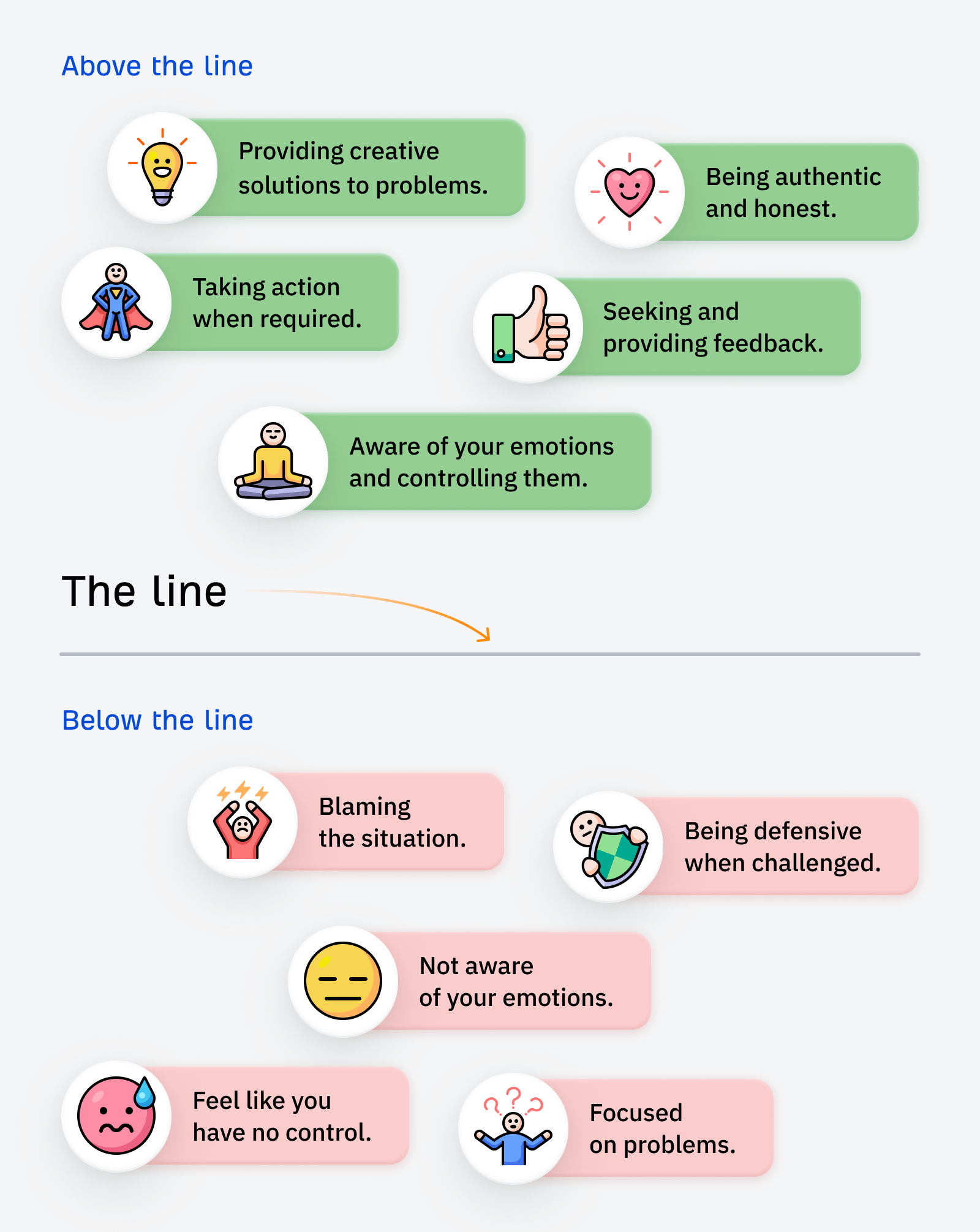

If you want a senior SEO role, I’d suggest shifting your mindset to above-the-line thinking.
In the world of SEO, it’s easy to blame all your search engine woes on Google. We’ve all been there. But a lot of the time, simple changes to your website can make a huge difference—it just takes a bit of effort to find them and make the changes.
SEO is not an exact science. Some stakeholders naturally get nervous if they sense you aren’t sure about what you’re saying. If you don’t get their support early on then you fall at the first hurdle.


To become more persuasive, try incorporating Aristotle’s three persuasive techniques into your conversations.
- Pathos: use logical reasoning, facts, and data to present water-tight arguments.
- Ethos: establish your credibility and ethics through results.
- Logos: make your reports tell a story.
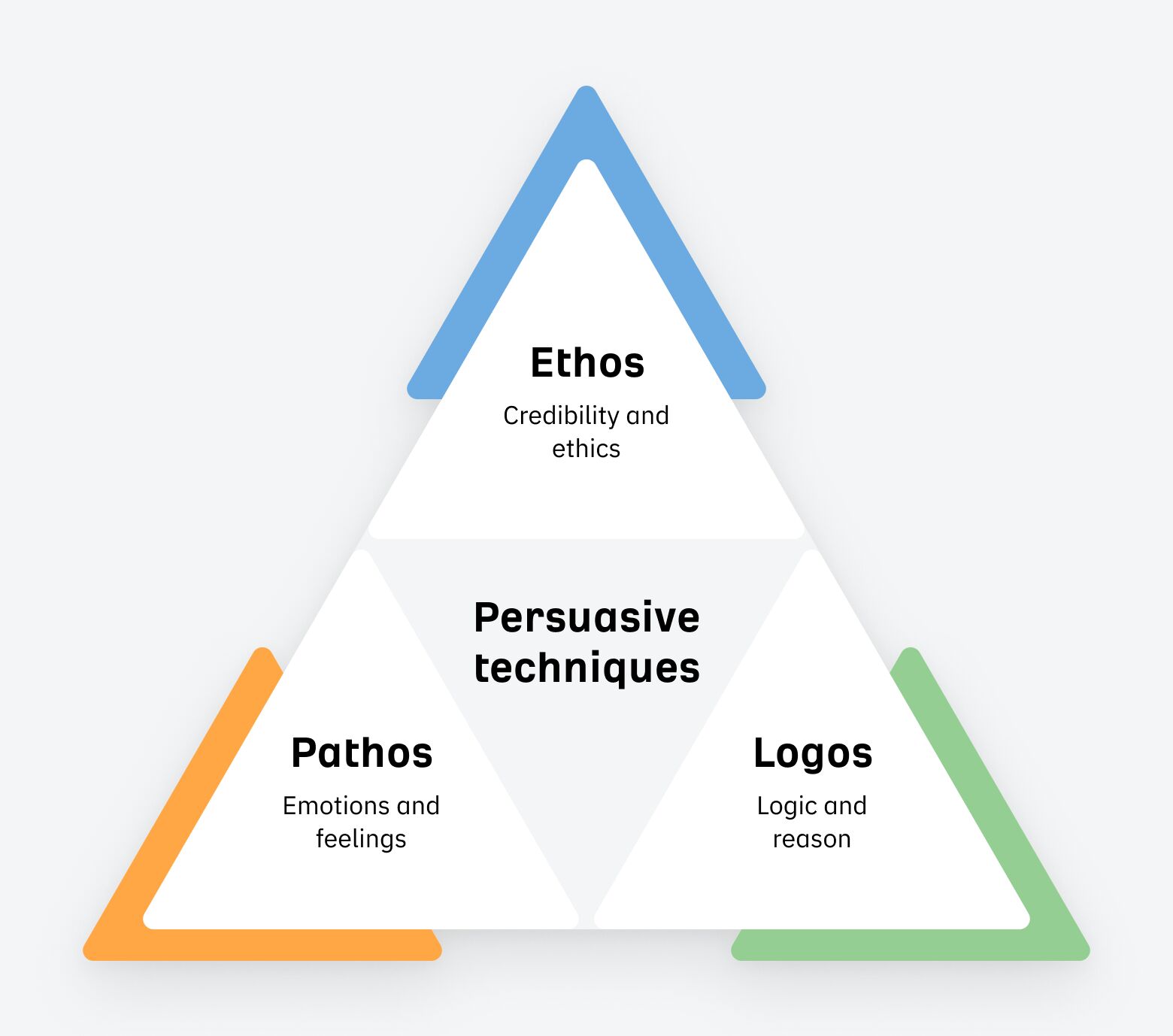

Then sprinkle in language that has a high level of modality:
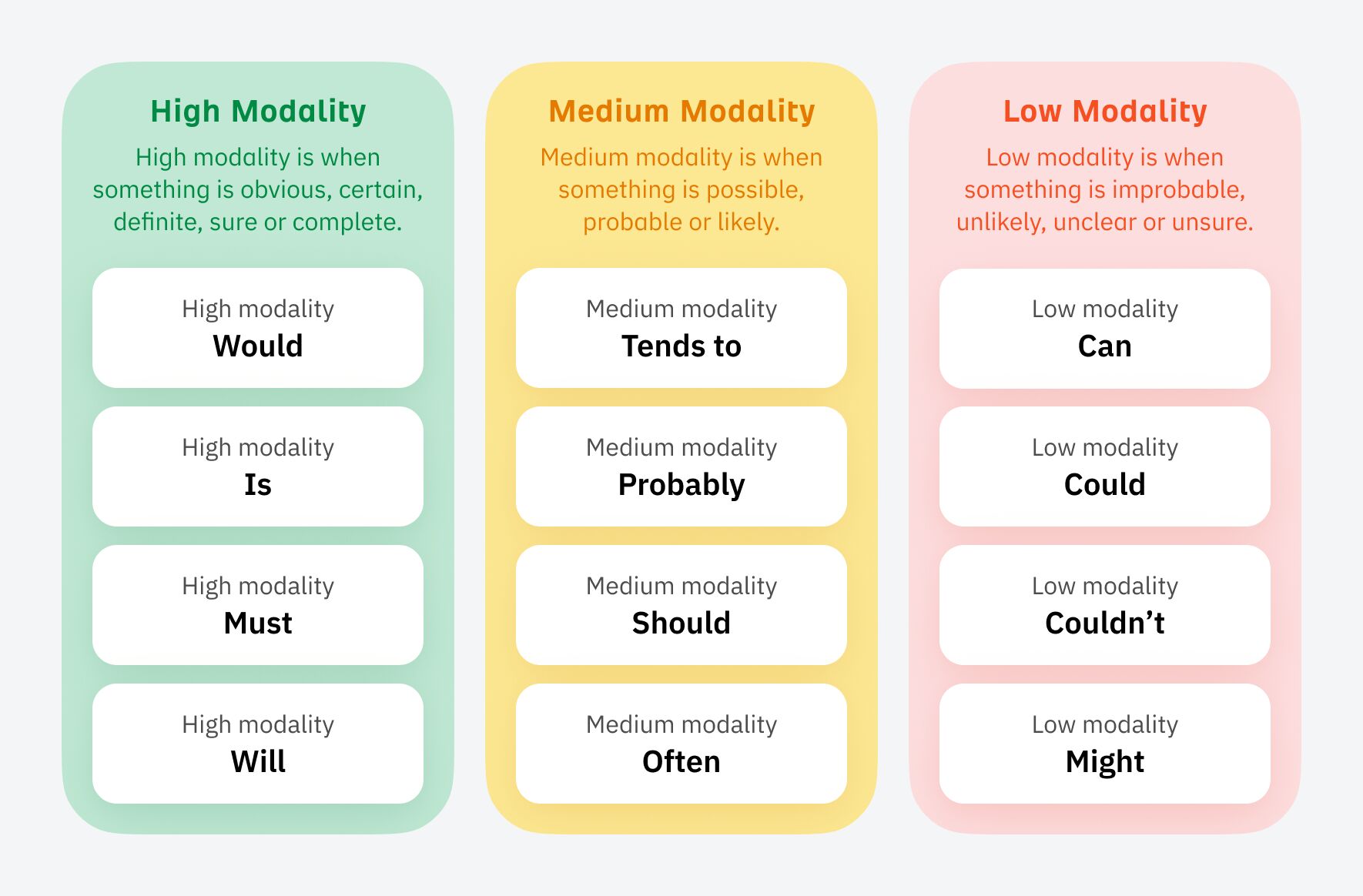

Some people will be able to do this naturally without even realizing it, but for others, it can be an uphill struggle. It wasn’t easy for me, and I had to learn to adapt the way I talked to stakeholders early on.
The strongest way I found was to appeal to emotions and back up with data from a platform like Ahrefs. Highlight what competitors have done in terms of SEO and the results they’ve earned from doing it.
Sidenote.
You don’t have to follow this tip to the letter, but being aware of these concepts means you’ll start to present more confident and persuasive arguments for justifying your SEO strategies.
When I started in SEO, I had zero connections. Getting a job felt like an impossible challenge.
Once I’d got my first SEO Lead job, it felt stupidly easy to get another one—just through connections I’d made along the way in my SEO journey.
I once got stuck on a delayed train with a senior member of staff, and he told me he was really into Google Local Guides, and he was on a certain high level. He said it took him a few years to get there.
Local Guides is part of Google Maps that allows you submit reviews and other user generated content
When he showed me the app, I realized that you could easily game the levels by uploading lots of photos.
In a “hold my beer” moment, I mass downloaded a bunch of photos, uploaded them to Local Guides and equaled his Local Guide level on the train in about half an hour. He was seething.
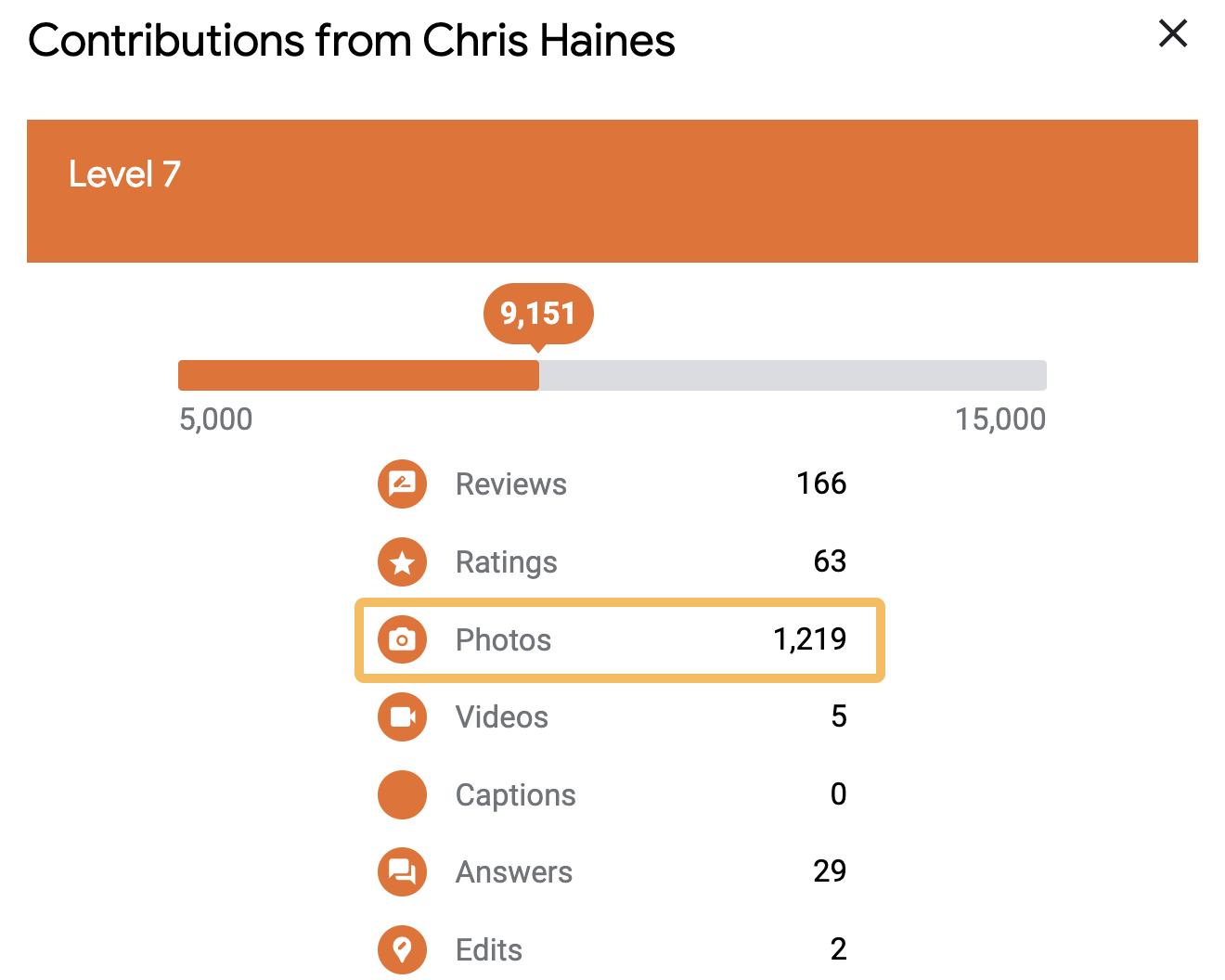

One of the photos I uploaded was a half-eaten Subway. It still amazes me that 50,974 people have seen this photo:


This wasn’t exactly SEO, but the ability to find this ‘hack’ so quickly impressed him, and we struck up a friendship.
The next month that person moved to another company, and then another few months later, he offered me an SEO Lead job.
Tip
Build connections with everyone you can—you never know who you might need to call on next.
Final thoughts
The road to becoming an SEO Lead seems straightforward enough when you start out, but it can quickly become long and winding.
But now armed with my tips, and a bucket load of determination, you should be able to navigate your way to an SEO Lead role much quicker than you think.
Lastly, if you want any more guidance, you can always ping me on LinkedIn. 🙂
SEO
7 Content Marketing Conferences to Attend in 2024
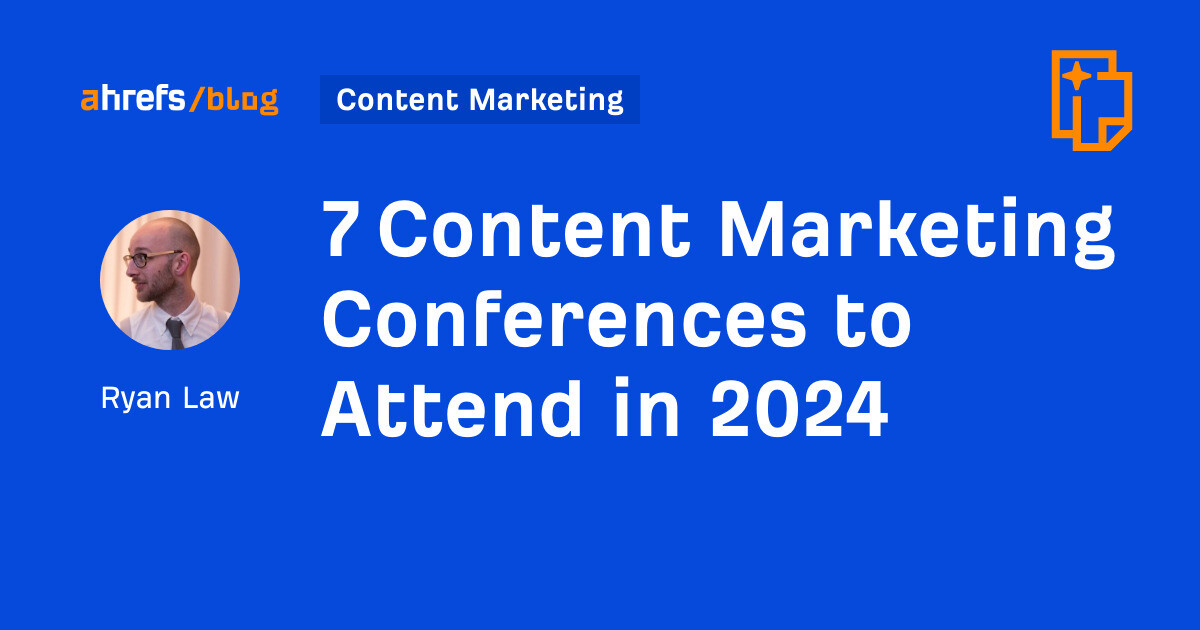
I spend most of my days sitting in front of a screen, buried in a Google Doc. (You probably do too.)
And while I enjoy deep work, a few times a year I get the urge to leave my desk and go socialize with other human beings—ideally on my employer’s dime 😉
Conferences are a great excuse to hang out with other content marketers, talk shop, learn some new tricks, and pretend that we’re all really excited about generative AI.
Without further ado, here are the biggest and best content marketing conferences happening throughout the rest of 2024.
Dates: May 5–7
Prices: from $795
Website: https://cex.events/
Location: Cleveland, OH
Speakers: B.J. Novak, Ann Handley, Alexis Grant, Justin Welsh, Mike King
CEX is designed with content entrepreneurs in mind (“contenpreneurs”? Did I just coin an awesome new word?)—people that care as much about the business of content as they do the craft.
In addition to veteran content marketers like Ann Handley and Joe Pulizi waxing lyrical about modern content strategy, you’ll find people like Justin Welsh and Alexis Grant exploring the practicalities of quitting your job and becoming a full-time content creator.
Here’s a trailer for last year’s event:
Sessions include titles like:
- Unlocking the Power of Book Publishing: From Content to Revenue
- Quitting A $200k Corporate Job to Become A Solo Content Entrepreneur
- Why You Should Prioritize Long-Form Content
(And yes—Ryan from The Office is giving the keynote.)
Dates: Jun 3–4
Location: Seattle, WA
Speakers: Wil Reyolds, Bernard Huang, Britney Muller, Lily Ray
Prices: from $1,699
Website: https://moz.com/mozcon
Software company Moz is best known in the SEO industry, but its conference is popular with marketers of all stripes. Amidst a lineup of 25 speakers there are plenty of content marketers speaking, like Andy Crestodina, Ross Simmonds, and Chima Mmeje.
Check out this teaser from last year’s event:
This year’s talks include topics like:
- Trust and Quality in the New Era of Content Discovery
- The Power of Emotion: How To Create Content That (Actually) Converts
- “E” for Engaging: Why The Future of SEO Content Needs To Be Engaging
Dates: Sep 18–20
Location: Boston, MA
Speakers: TBC
Prices: from $1,199
Website: https://www.inbound.com/
Hosted by content marketing OG HubSpot, INBOUND offers hundreds of talks, deep dives, fireside chats, and meetups on topics ranging from brand strategy to AI.
Here’s the recap video:
I’ve attended my fair share of INBOUNDs over the years (and even had a beer with co-founder Dharmesh Shah), and always enjoy the sheer choice of events on offer.
Keynotes are a highlight, and this year’s headline speaker has a tough act to follow: Barack Obama closed out the conference last year.
Dates: Oct 22–23
Location: San Diego, CA
Speakers: TBC
Prices: from $1,199
Website: https://www.contentmarketingworld.com/
Arguably the content marketing conference, Content Marketing World has been pumping out content talks and inspiration for fourteen years solid.
Here’s last year’s recap:
The 2024 agenda is in the works, but last year’s conference explored every conceivable aspect of content marketing, from B2C brand building through to the quirks of content for government organizations, with session titles like:
- Government Masterclass: A Content Marketing Strategy to Build Public Trust
- A Beloved Brand: Evolving Zillow’s Creative Content Strategy
- Evidence-Based SEO Strategies: Busting “SEO Best Practices” and Other Marketing Myths
Dates: Oct 24–25
Location: Singapore
Speakers: Andy Chadwick, Nik Ranger, Charlotte Ang, Marcus Ho, Victor Karpenko, Amanda King, James Norquay, Sam Oh, Patrick Stox, Tim Soulo (and me!)
Prices: TBC
Website: https://ahrefs.com/events/evolve2024-singapore
That’s right—Ahrefs is hosting a conference! Join 500 digital marketers for a 2-day gathering in Singapore.
We have 20 top speakers from around the world, expert-led workshops on everything from technical SEO to content strategy, and tons of opportunities to rub shoulders with content pros, big brands, and the entire Ahrefs crew.
I visited Singapore for the first time last year and it is really worth the trip—I recommend visiting the Supertree Grove, eating at the hawker markets in Chinatown, and hitting the beach at Sentosa.
If you need persuading, here’s SEO pro JH Scherck on the Ahrefs podcast making the case for conference travel:
And to top things off, here’s a quick walkthrough of the conference venue:
Dates: Oct 27–30
Location: Portland, OR
Speakers: Relly Annett-Baker, Fawn Damitio, Scott Abel, Jennifer Lee
Prices: from $1,850
Website: https://lavacon.org/
LavaCon is a content conference with a very technical focus, with over 70 sessions dedicated to helping companies solve “content-related business problems, increase revenue, and decrease production costs”.
In practice, that means speakers from NIKE, Google, Meta, Cisco, and Verizon, and topics like:
- Operationalizing Generative AI,
- Taxonomies in the Age of AI: Are they still Relevant?, and
- Out of Many, One: Building a Semantic Layer to Tear Down Silos
Here’s the recap video for last year’s conference:
Dates: Nov 8
Location: London
Speakers: Nick Parker, Tasmin Lofthouse, Dan Nelken, Taja Myer
Prices: from £454.80
Website: https://www.copywritingconference.com/
CopyCon is a single-day conference in London, hosted by ProCopywriters (a membership community for copywriters—I was a member once, many years ago).
Intended for copywriters, creatives, and content strategists, the agenda focuses heavily on the qualitative aspects of content that often go overlooked—creative processes, tone of voice, and creating emotional connections through copy.
It’s a few years old, but this teaser video shares a sense of the topics on offer:
This year’s talks include sessions like:
- The Mind-Blowing Magic of Tone of Voice,
- The Power of AI Tools as a Content Designer, and the beautifully titled
- Your Inner Critic is a Ding-Dong.
(Because yes, your inner critic really is a ding-dong.)
Final thoughts
These are all content-specific conferences, but there are a ton of content-adjacent events happening throughout the year. Honourable mentions go to DigiMarCon UK 2024 (Aug 29–30, London, UK), Web Summit (Nov 11–14, Lisbon, Portugal), and B2B Forum (Nov 12–14, Boston, MA).
I’ve focused this list solely on in-person events, but there are also online-only conferences available, like ContentTECH Summit (May 15–16).
Heading to a content conference that I haven’t covered? Share your recommendation with me on LinkedIn or X.
-

 PPC4 days ago
PPC4 days ago19 Best SEO Tools in 2024 (For Every Use Case)
-

 PPC7 days ago
PPC7 days ago4 New Google Ads Performance Max Updates: What You Need to Know
-

 SEO6 days ago
SEO6 days agoGoogle Clarifies Vacation Rental Structured Data
-

 MARKETING6 days ago
MARKETING6 days agoWill Google Buy HubSpot? | Content Marketing Institute
-
SEARCHENGINES6 days ago
Daily Search Forum Recap: April 16, 2024
-

 PPC7 days ago
PPC7 days agoShare Of Voice: Why Is It Important?
-

 PPC6 days ago
PPC6 days agoHow to Collect & Use Customer Data the Right (& Ethical) Way
-

 MARKETING5 days ago
MARKETING5 days agoStreamlining Processes for Increased Efficiency and Results















You must be logged in to post a comment Login